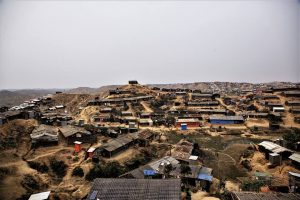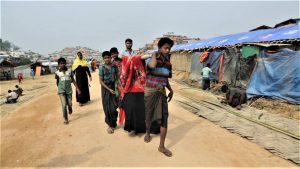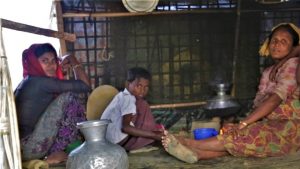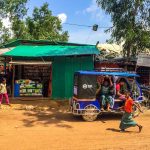A multi-disciplinary team led by academics from the Business School have been awarded part of BU’s Global Challenges Research Fund (GCRF) to conduct research on Responsible Project Management (RPM) in the context of the ‘Rohingya crisis’ in Bangladesh.
“New knowledge about project management will be developed by studying and sharing understandings in the context of a human and environmental crisis, with particular emphasis on the competencies required to successfully engage diverse stakeholders” explains Dr Karen Thompson, from the Department of Leadership, Strategy and Organisations (LSO).

Dr Nigel Williams, Senior Lecturer in the LSO Department, elaborates, “Project management is often presented as an instrumental sequence of activities with defined outcomes. However, the reality of project practice involves uncertainty, ambiguity and complex human interactions with unpredictable outcomes. These challenges vary by context and particularly in developing countries which may be recovering from natural or man-made disaster, the rational/instrumental perspective of project management may be of little value.”

Bangladesh faces a large scale human disaster and is a country already highly vulnerable to the adverse effects of natural disasters due to its geographical location, flat and low-lying landscape and population density. Refugees arriving from neighbouring Myanmar are living in “an extremely precarious situation” (MSF 2018), and creating serious economic, social and environmental challenges. The economic impact of Rohingya refugees on the Bangladesh economy was already the subject of investigation by Dr Mehdi Chowdhury, Senior Lecturer in Economics at the Business School, who is a former resident of Bangladesh and joins the team.
Tilak Ginige, Senior Lecturer in Environmental Law, Faculty of Science and Technology, completes the team and has previously worked in the field of asylum immigration law.

The project will be funded for two years and will bring together the two disciplines of project management and responsible management. Empirical research in Bangladesh will be complimented by a collective social learning process with stakeholders to jointly frame and define problems, determine boundaries and intra team interactions. Outcomes are expected to improve the management of projects in Bangladesh and to develop new understandings, practices and sustainable relationships. New knowledge will have the potential to improve the management of projects and stakeholder engagement in other developing countries and projects where sustainable development is a priority.
For further information please contact Dr Mehdi Chowdhury mchowdhury@bournemouth.ac.uk
MSF 2018. Rohingya Refugee Crisis. Available online at: https://www.msf.org.uk/issues/rohingya-refugee-crisis?gclid=EAIaIQobChMIrd6skYCP2gIVyZkbCh2BKAwZEAAYASAAEgLEOPD [Accessed 29 April 2018]
Photographs courtesy of Mohammad Romel
 BU research tackles global challenges – Rohingya refugee crisis (Bangladesh)
BU research tackles global challenges – Rohingya refugee crisis (Bangladesh)










 Beyond Academia: Exploring Career Options for Early Career Researchers – Online Workshop
Beyond Academia: Exploring Career Options for Early Career Researchers – Online Workshop UKCGE Recognised Research Supervision Programme: Deadline Approaching
UKCGE Recognised Research Supervision Programme: Deadline Approaching SPROUT: From Sustainable Research to Sustainable Research Lives
SPROUT: From Sustainable Research to Sustainable Research Lives BRIAN upgrade and new look
BRIAN upgrade and new look Seeing the fruits of your labour in Bangladesh
Seeing the fruits of your labour in Bangladesh ECR Funding Open Call: Research Culture & Community Grant – Apply now
ECR Funding Open Call: Research Culture & Community Grant – Apply now ECR Funding Open Call: Research Culture & Community Grant – Application Deadline Friday 12 December
ECR Funding Open Call: Research Culture & Community Grant – Application Deadline Friday 12 December MSCA Postdoctoral Fellowships 2025 Call
MSCA Postdoctoral Fellowships 2025 Call ERC Advanced Grant 2025 Webinar
ERC Advanced Grant 2025 Webinar Update on UKRO services
Update on UKRO services European research project exploring use of ‘virtual twins’ to better manage metabolic associated fatty liver disease
European research project exploring use of ‘virtual twins’ to better manage metabolic associated fatty liver disease